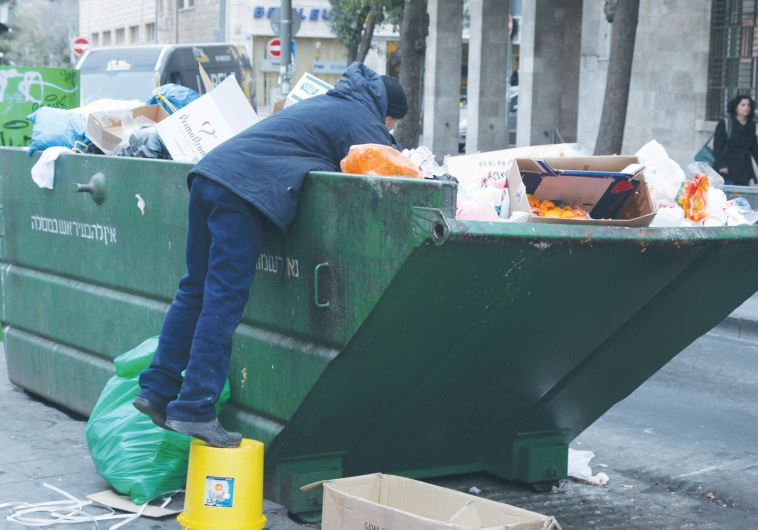Yael's corner: The war on poverty
"It’s better to die than to live like this,” a heartbreaking sentiment I have heard far too many times from poor elderly Israelis.
 A man in Jerusalem searching through the garbage(photo credit: MARC ISRAEL SELLEM/THE JERUSALEM POST)
A man in Jerusalem searching through the garbage(photo credit: MARC ISRAEL SELLEM/THE JERUSALEM POST)